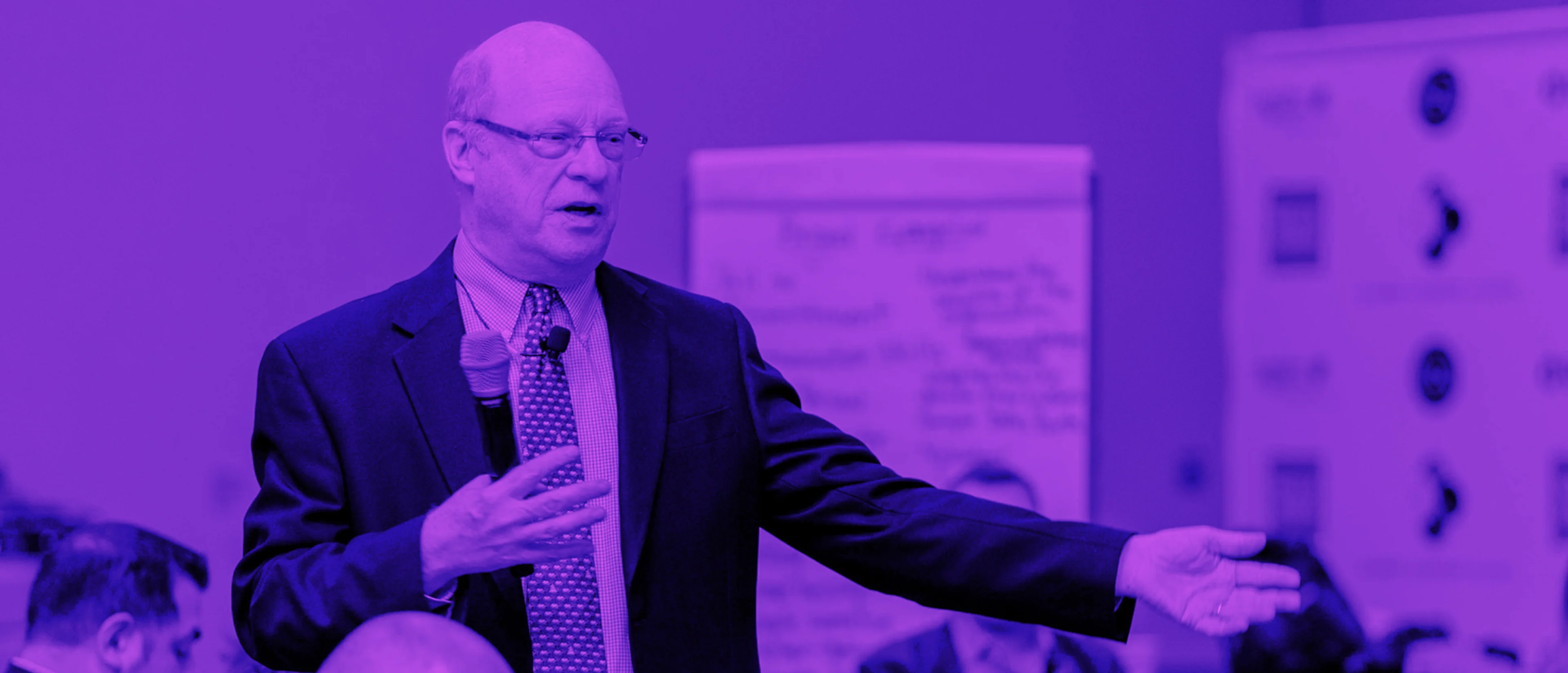What does it really take to lead meaningful change inside a massive organization? How do you get people across departments, regions, and even continents to not just go along with a transformation, but to champion it? And what do you do when they don’t?
In a recent episode of Rethink Change, one guest pulls back the curtain on what most change management playbooks miss: the hard conversations, the hidden resistors, the make-or-break moments of miscommunication, and the deep strategic clarity required to keep momentum alive. If you’ve ever led a high-stakes initiative or watched one crash and burn, this is the kind of insight you wish you had from the start.
Meet Our Guest, Maggie Montaigne, Senior Advisor for Accenture
Maggie Montaigne is a Houston-based strategist and board-level advisor with 30+ years of experience leading growth and transformation across E&P, oil-field services, aviation logistics, and digital consulting. She spent nearly 15 years at Halliburton, rising to Vice President of the ExxonMobil Account and Senior Director of Deepwater Solution.
After steering worldwide marketing and BD at Bristow Group, she joined ConocoPhillips, where she directed global subsurface, well-operations supply chain, and IT improvement programs. Most recently, a Senior Advisor at Accenture, Maggie is a force for transformational change.
Listen to our conversation with Maggie on Spotify:
Maggie Montaigne on Rethink Change
Strategy First: Why Tactics Fail Without a Roadmap
When businesses talk about change, the conversation often jumps straight to tactics like marketing campaigns, new hires, or fresh branding. But, as Maggie Montaigne has seen across decades of experience, meaningful change doesn’t begin with action; it begins with direction. And without a clear, shared strategy, even the best ideas can go sideways. Teams get caught up in busywork. Resources get drained. Energy fizzles out. Why? Because no one’s truly aligned on where they’re going, or why it even matters.
That’s why Maggie drives home one of the most overlooked truths in business: change fails without communication. A clear strategy involves ensuring everyone understands it, sees how they fit into it, and sees it played out in real-time.
A quick email blast or kickoff meeting isn’t enough. Real change demands constant, clear communication across every level of the organization, which is why frameworks like Pennebaker’s Strategic Guardrails made all the difference. Instead of chasing metrics or outputs, Maggie’s team learned to rally around shared values and a deeper understanding of the business’s direction.
Meaningful change requires a commitment to making the company’s strategic roadmap visible, believable, and actionable for everyone involved.
Keeping Change Alive: Momentum, Mentorship, and Managing Pushback
But even with a solid strategy and intentional communication, another challenge can quietly derail momentum: initiative fatigue. When teams are asked to take on too many changes without clear direction or visible executive ownership, they lose energy.
Projects that once felt promising fade into the background. It’s not that the ideas weren’t good; it’s that no one had the time, focus, or buy-in to carry them through. Maggie emphasizes that leaders must treat urgency and follow-through as part of the strategy, not afterthoughts. Without them, meaningful change quickly becomes another forgotten initiative.
Keeping momentum alive means recalibrating when priorities shift, reinforcing the “why” behind the work, and most importantly, giving people room to lead. Maggie sees change as a proving ground for future leadership. When things get hard or the path forward gets murky, that’s when emerging leaders tend to step up. She’s deeply intentional about identifying those people, giving them visibility, and letting them learn through action.
Still, Maggie knows that not everyone will come along willingly. In fact, some actively resist change. Coining the term “anti-sponsors”, Maggie shares the importance of identifying the internal blockers who work against progress within your company.
But instead of immediately firing them for the resistance, she utilizes this pushback as a tool to dig deeper. When your “anti-sponsors” negate your ideas for change, don’t walk away from them; get close. Ask questions and understand the fear behind their resistance. Just because someone may initially be against your ideas doesn't mean they're against you. Sometimes, the resistance is simply a caution flag to pay attention.
What you may see as defiance or resistance to change may just be an opportunity to reveal blind spots in the plan. Playing devil’s advocate isn’t always a sign that the change is bad, but rather understanding the implications of what that change can do. Will customers be confused? Will it cause a delay in production? Will competitors try to knock you out of the game? Often, those tough questions help stress-test the strategy before it rolls out.
And then sometimes you have to move forward knowing you won’t always have other people’s support. At the end of the day, meaningful change doesn’t need unanimous applause. It needs momentum, vision, and a few brave people willing to lead through uncertainty.
Subscribe to the Show for More Great Content Like This!
Curious about how to lead meaningful change in your business but not quite ready to take action? We’ve got more episodes like this one where our podcast guests share real-world experiences, practical strategies, and lessons learned from transforming their businesses.
Whether you’re looking to gather insight, hear inspirational stories from trial to triumph, or need advice on when to take that first step when the time is right, this show is for you. Be sure to subscribe to Rethink Change, where innovators and disruptors go for clarity.
This show is hosted by CEO Ward Pennebaker and President Matt Pennebaker, who deliver sharp insights from battle-tested leaders who have navigated chaos and turned challenges into momentum.
You’ll hear from executives from startups to global behemoths from a wide range of industries. No fluff. All results. These conversations reveal what works, enabling you to think differently and act smarter.



